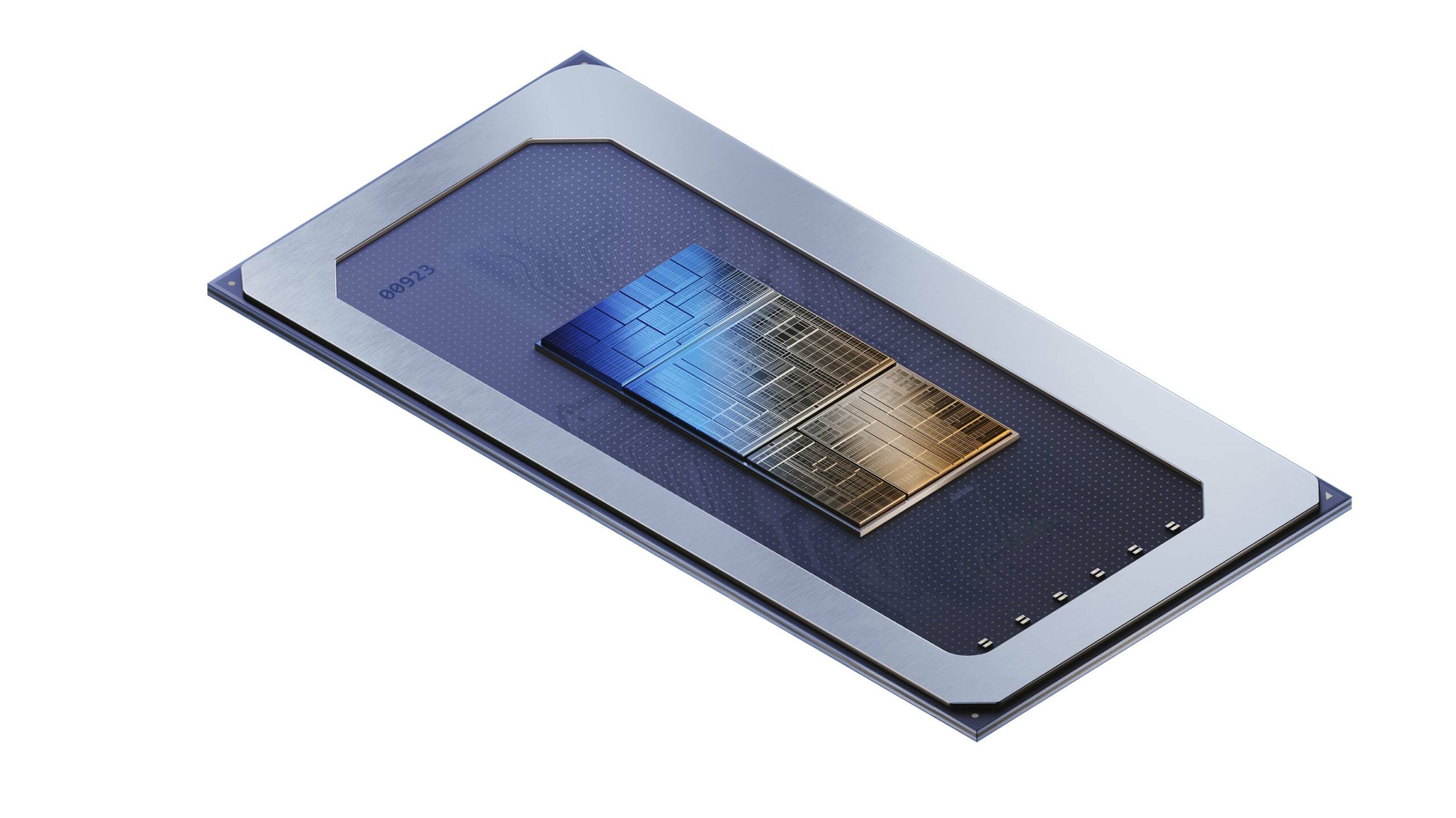
Ahead of Computex 2023, which kicks off on May 30th in Taiwan, Intel has teased its upcoming Meteor Lake chips, which will focus heavily on AI.
Due out later this year, Meteor Lake chips will be the company’s first on its ‘Intel 4’ process. Intel 4 is the new name for Intel’s 7nm process, which will mark a few significant shifts for the company, such as the move to extreme ultraviolet (EUV) lithography. Competitors TSMC and Samsung already use EUV for their chips.
Moreover, Intel previously said that compared to the Intel 7 (third-gen 10nm process), Intel 4 can hit either 21.5-percent better clock speeds with the same amount of power or achieve the same speeds while using 40 percent less power.
While it remains to be seen if Intel 4 lives up to that, power efficiency is one of the two main focuses of Meteor Lake. The other focus? AI.
During a press briefing, Intel highlighted that its new Meteor Lake chips will boast next-gen power management, built-in Arc graphics and a new integrated AI engine.
The integrated Arc GPU is particularly interesting. Arc, for those unfamiliar, is the branding for Intel’s new discrete line of GPUs. But with Meteor Lake, it seems Intel’s packing some of what it learned from Arc into a low-power integrated graphics system. Intel highlighted gaming performance but also suggested it’d be useful for compute-heavy AI applications. Ultimately, it remains to be seen how the graphics perform in real-world testing once Meteor Lake is available.
Meteor Lake chips will also sport a vision processing unit (VPU) for — you guessed it — AI applications. One example Intel used was powering sustained workloads like blurring the background in a video call.
According to Intel, the VPU can enable several new features, like auto-tracking, eye contact, avatar representation and gesture recognition, as well as improve existing features like more accurately blurring the background and Dynamic Noise Suppression. Moreover, Meteor Lake’s VPU will be able to do this while using significantly less power.
Intel stressed that its efforts to improve AI performance with on-device hardware won’t necessarily work for everything, but the company is putting a lot of effort into scaling AI and expanding tools for developers. Plus, the company talked about the potential of a hybrid model that balances on-device capabilities with cloud-based AI.
Meteor Lake chips appear to be shaping up to offer better performance, power efficiency and AI tools. It’ll be interesting to see how all this plays out in real-world performance, but if Intel can move the needle on power efficiency, it could be a big win for the company.
Image credit: Intel
MobileSyrup may earn a commission from purchases made via our links, which helps fund the journalism we provide free on our website. These links do not influence our editorial content. Support us here.


